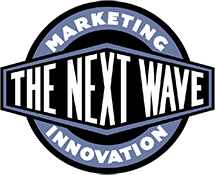Sure, Burger King has seen 20 consecutive quarters of same-store-sales-growth since it finally hired an ad agency that “gets it” (Crispin Porter + Bogusky) and then let them do their thing.
Of course for that to happen, you also need a Chief Marketing Officer who “gets it” and it seems Russ Klein has some pretty good insight on what to green light:
Mr. Klein: “Whopper Freakout” was a great example of tension and the way deprivation affects the way someone who is a loyal Whopper fan. We try to make all of our briefs hinge on some sort of social or anthropological insight that’s charged up with tension. It’s not like we’re trying to set our hair on fire to get tension.
via Burger King’s Russ Klein Promises More Premium Products - Advertising Age - CMO Strategy.
The line that we put in bold italics should be on a big sign above any marketers desk. It’s much easier to get an emotional response to something that’s already got emotions attached.
No one cares about your nifty new twist on your features, advantages or benefits- no, they want to know what’s in it for them- in a way that makes them lust for your product and trust your company.
Interestingly enough, the article on the other side of the spread was “Why emotional messages beat rational ones.” This quote sums it up nicely:
What the data show us is that emotional campaigns are almost twice as likely to generate large profit gains than rational ones, with campaigns that use facts as well as emotions in equal measure fall somewhere between the two.
It turns out that emotional campaigns in general generate a wider range of desirable business effects, each of which plays its part in improving profitability. But they excel in one noteworthy area: reducing price sensitivity, and hence strengthening the ability of brands to secure a premium in the marketplace (or, in the current economic climate, to hold firm on pricing).
To create messages with meaning, start looking at what decisions a buyer has to make to choose your product, and think of how it fits into the rest of their life- then find what makes them uncomfortable and make it engaging or funny- be it the complexity of a car- broken down into the parts that go together like the Honda Cog ad they point to in the second article or the “Whopper Freakout” campaign. Either way- you’ll get more interest, which should translate into more sales.
